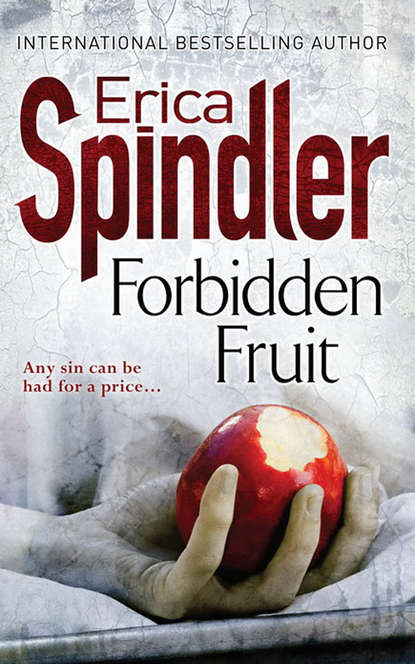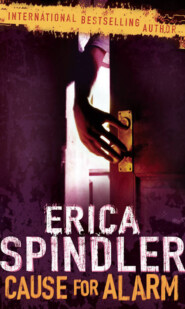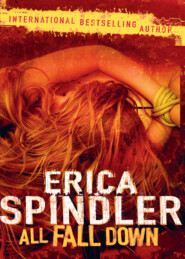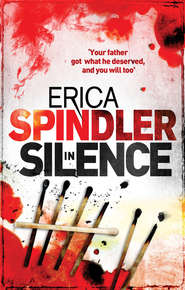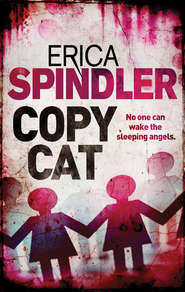По всем вопросам обращайтесь на: info@litportal.ru
(©) 2003-2024.
✖
Forbidden Fruit
Автор
Год написания книги
2018
Настройки чтения
Размер шрифта
Высота строк
Поля
“Poppet? What’s wrong?”
“Nothing, Daddy,” she said, the words small and sad.
For a moment, he said nothing, and she silently begged for him to ask her the question again, silently wished for him to insist she tell him the truth. Instead, in a voice that sounded false, he said, “Have you thought about what you want for your birthday?”
She didn’t look up; the tablecloth swam before her eyes. “It’s still two months away.”
“Two months isn’t long.” His coffee cup clicked against the saucer as he set it down. “You must have given it some thought.”
She had, Glory thought bitterly. She wanted the same thing she had wished for last year, the same thing she wished for every year.
That her mother would love her.
“No,” Glory whispered without looking up. “I haven’t.”
“Well, don’t you worry.” He reached across the table and covered her clenched hands with one of his own. “Your daddy has something special in mind. Something fitting his precious poppet’s eighth birthday.”
When she didn’t respond, he squeezed her hands, then drew his back. “Let’s do a quick tour of the hotel before we head home.”
She shrugged, still battling tears. “Okay.”
At first, as they strolled down the halls, Glory’s hurt and feeling of betrayal prevented her from enjoying this ritual, one she usually found such pleasure in. But as each minute passed, those feelings dimmed and the magic of the St. Charles, the magic of being with her father, swelled inside her. Her father loved her, she knew. They shared this, their love of the hotel. Here, her mother couldn’t come between them.
When they had checked each floor and made sure everything was in perfect order, Philip summoned an elevator, their tour over. “Occupancy is the key,” her father said as they stepped into the empty elevator. He punched the lobby button. “You must keep the hotel booked. Empty rooms are not only lost revenue, but lost capital, as well. The staff and the premises must be maintained to the same standard, whether the hotel’s occupancy is twenty percent or one hundred percent. Do you understand?”
She nodded, and he continued, “You must never abuse your ownership. Guests’ needs must always come before the owner’s needs. Never give away a room or service you can sell.
“It will be tempting, I know. It’s fun to give away dinners, to throw lavish parties for your friends, to do favors for people you like. But over the years I’ve seen hoteliers get into trouble that way. They’ve lost either all or part ownership of their hotels. That must never happen to the St. Charles. We have kept her strong and in the family by being good businessmen, and by being determined to hold on to her. The needs of the hotel come first. Always.”
“I couldn’t bear for us to lose the St. Charles,” she said softly, lifting her face to his. “I love her.”
“That’s good. Because someday she’ll be yours.” The elevator doors slid open, but her father didn’t make a move to get out. Instead, he caught her hand and held it tightly. “The St. Charles is in your blood, Glory. It’s as much a part of you as your mother and I. It’s your heritage.”
“I know, Daddy.”
He tightened his fingers more, meeting her eyes, the expression in his fierce. “You must never forget, family and heritage are everything. Who you are and who you will be. Never forget,” he said again. “Family and heritage, no one can take them away from you.”
Chapter 9
Glory awakened suddenly but without a start. She didn’t open her eyes but even so, she knew her mother stood beside the bed, staring down at her. Glory felt her presence, felt her gaze burning into her, marking her like a brand.
Seconds ticked past, becoming minutes. Glory kept her eyes shut tight. She didn’t want to alert her mother to the fact that she had awakened, she didn’t want to see her mother’s expression. She knew, from countless times before, just what that expression would be. And how it would make her feel.
Glory began to sweat under her light blanket; her heart thundered so heavily against the wall of her chest, she was certain her mother must be able to see its beat. Time seemed to stop and hold its breath; her every sense, every nerve ending strained, focusing on her mother, waiting and wishing for her to go away.
But her mother didn’t go away. Instead, she moved closer to the bed. Glory heard the soft scrape of her slippers on the floor, felt the mattress move as her mother’s knees connected with it. Her mother bent over her, the rhythm of her breathing changing, deepening to a sort of pant.
Fear turned Glory’s mouth to ash. What if it wasn’t her mother beside the bed? What if it was a stranger gazing down at her, or a monster?
What if it was the devil himself?
A cry raced to her lips; she held it back—barely. The fear squeezed at her. She pictured The Great Red Beast there beside her, waiting for her to open her eyes so he could steal her soul.
Glory curled her fingers tightly into the damp bedsheets, the darkness closing in on her, her imagination creating vivid, frightening movies in her head. Finally, she couldn’t bear the unknown another moment; finally the what ifs overwhelmed her. Terrified, she cracked open her eyes.
And wished with all her heart that she had not.
Her mother stood beside the bed, gazing down at her, her face twisted into an ugly mask, her eyes burning with an emotion, a light, that made Glory’s skin crawl.
Glory shuddered, even as tears built behind her eyes. Her mother looked at her as if she, Glory, was the monster she had feared only moments before. As if she, Glory, was the devil.
Why, Mama? Glory wanted to scream. What about me is so ugly? What have I done to cause you to look at me this way?
She swallowed the words, though not without great effort. A moment later, without so much as blinking, her mother turned and left the room. She snapped the door shut behind her, leaving Glory in total darkness once again.
Glory’s tears came then, hot and bitter. She curled into a tight ball, her face pressed into her pillow to muffle the sound of her shame, her despair. She cried for a long time, until her tears were spent, until all she could manage was a dry, broken sound of grief.
She rolled onto her back, bringing one of her soft, plush animals with her. She clutched it to her chest, remembering the first time she had awakened to find her mother above her, looking at her in that way, her face almost unrecognizable with hate. Glory had been young, so young she couldn’t recall any other details of the experience.
She could recall, however, the way she had felt—ugly and afraid. And alone, so very alone.
The way she felt right now.
Glory hugged the toy tighter to her chest. Why did her mother look at her that way? What had she done to cause her mother’s face to change into one she barely recognized? One that was ugly and frightening?
Why didn’t her mother love her?
It always came back to that, Glory thought, tears welling again, slipping down her cheeks.
At least her father loved her.
Glory clasped that truth to her, much as she did her plush toy, denying the little voice that taunted, the one that insisted he loved her mother more. That didn’t matter, she told herself, thinking of their evening at the hotel, of their dinner at the Renaissance Room and the things he had said about family and heritage.
Glory ran his words through her head, holding on to them, letting them soothe and comfort her. They made her feel less alone, less frightened. She was a part of her mother, a part of her father. She was a part of the St. Germaine family and of the St. Charles.
No one could take that away from her. Not her mother’s burning gaze, not the darkness of her own fear.
She wasn’t alone. With family, she never would be.
Chapter 10
Glory stopped at the library door, looked over her shoulder to make sure her mother wasn’t anywhere about, then ducked inside, partially shutting the door behind her. She tiptoed across the floor, heading toward the shelves containing the forbidden books, the ones her mother had made strictly off limits.
And now she knew why.
She reached the wall of books, glanced behind her one last time, then tipped her head back, scanning the titles on the fourth shelf. Art Through The Ages; The Postimpressionists; Pierre Auguste Renoir: The Last Years; Michelangelo.
Glory stopped on the last. Her grand-mère had called Michelangelo the greatest sculptor of the human form ever. She would bet that book contained what she was looking for. Now, all she had to do was figure out how she was going to get it off the shelf.





